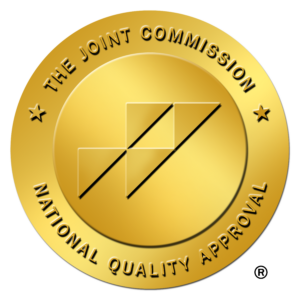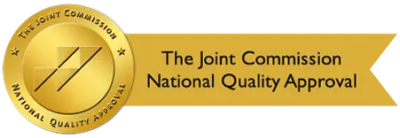Understanding Depression More Than Just a Bad Day
Understanding Depression More Than Just a Bad Day
We’ve all had those days filled with sadness, frustration, or a bit of the blues. But what if those feelings don’t disappear? How do you recognize the difference between normal mood fluctuations and something more serious like depression? Depression is a complex medical condition that impacts millions of people worldwide, yet it often remains misunderstood and stigmatized.
What is Depression?
Depression (also known as major depressive disorder or clinical depression) is more than simply feeling down. It’s a persistent and pervasive mood disorder that affects how you feel, think, and function in your daily life.
Here’s a closer look, according to the National Institute of Mental Health:
Persistent Sadness and Emptiness: A feeling of overwhelming sadness that lingers for weeks or months, often accompanied by a sense of emptiness or hopelessness.
Loss of Interest: Activities once enjoyed, such as hobbies, sports, or spending time with loved ones, lose their appeal, and you find it difficult to feel pleasure.
Changes in Sleep Patterns: This can manifest as insomnia (trouble falling asleep or staying asleep) or hypersomnia (excessive sleeping).
Fatigue and Low Energy: Even simple tasks might feel overwhelming due to an unrelenting lack of energy and persistent feelings of tiredness.
Difficulty Concentrating and Making Decisions: Depression can cloud your thinking, impairing your ability to focus and making even small decisions seem like enormous tasks.
Changes in Appetite and Weight: Unexplained weight loss or gain can occur as a result of decreased or increased appetite.
Feelings of Worthlessness and Guilt: Self-criticism and feelings of worthlessness become prevalent. You may fixate on past failures or blame yourself for things beyond your control.
Restlessness or Slowed Movement: Some individuals experience agitation and restlessness, while others may feel slowed down in their movements and speech.
Recurrent Thoughts of Death or Suicide: In severe cases, depression can lead to dark thoughts of death, suicidal ideation, or even suicide attempts.
How Do I Know If It’s Depression or Just a Bad Day?
It’s important to remember that everyone experiences down days, moments of sadness, and frustration. These are normal fluctuations in mood. However, if these feelings continue, worsen, and negatively impact your ability to function, it could be a sign of something more serious like depression. Here are some crucial questions to consider:
Duration: While everyone experiences bad days from time to time, depressive feelings usually persist for at least two weeks or more.
Severity: Depression significantly disrupts your daily life, relationships, work, or school performance.
Number of Symptoms: A bad day might bring a few negative emotions, but depression typically involves a cluster of the symptoms described above.
The Toll of Depression: Statistics that Matter
Depression may feel like an overwhelming personal burden, but its reach extends far beyond the individual. This debilitating illness has widespread consequences for our health, productivity, and even our lifespan. Here are some sobering statistics that illustrate the extensive toll depression takes:
Prevalence:
- According to the World Health Organization, over 280 million people suffer from depression, globally.
- A study by the National Center for Health Statistics found that over 21 million adults in the United States experienced a major depressive episode in 2021.
Impact on Overall Health:
- Depression increases the risk of developing chronic health conditions like heart disease, stroke, diabetes, and certain types of cancer.
- People with depression are more likely to have other co-occurring mental health disorders like anxiety, substance abuse disorders, and eating disorders.
Gender Disparity:
- Women are almost twice as likely as men to experience depression. This could be due to a combination of biological, hormonal, and social factors.
Disability and Work Productivity:
- According to the World Health Organization, depression is a leading cause of disability worldwide, affecting individuals from all walks of life.
- The economic burden of depression is substantial, with costs arising from lost productivity, absenteeism, and increased healthcare utilization.
Risk of Suicide:
- World Health Organization data indicates that depression is a major risk factor for suicide, with a staggering estimate of over 700,000 people losing their lives to suicide globally each year.
What Can I Do If I Have Depression?
If you suspect you might be experiencing depression, know that you’re not alone and that help is available. There are several things you can do to take charge of your mental health and start feeling better. Let’s dive into the options:
Seek Professional Help: The most important step is reaching out to a mental health professional. A doctor or therapist can assess your symptoms, provide an accurate diagnosis, and recommend a tailored treatment plan.
Therapy: Psychotherapy, such as Cognitive Behavioral Therapy (CBT), helps you identify and change negative thought patterns and behaviors that contribute to depression.
Medication: Antidepressants may be prescribed to help regulate brain chemicals associated with mood. Your doctor will work with you to find the best treatment option.
Support Groups: Connecting with others who understand your experience can offer validation, reduce isolation, and provide a safe space for sharing.
What Does Depression Mean for Me?
If you are diagnosed with depression, it doesn’t define you as a person. It’s a treatable medical illness, just like any other health condition. Here’s what a depression diagnosis might mean:
Understanding the Root Cause: Depression could be caused by a combination of factors such as genetics, brain chemistry, life events, and other medical conditions. A diagnosis can help shed light on the contributing factors in your case.
Access to Treatment: A diagnosis opens the door to various treatment options, including therapy, medication, or a combination of both. Treatment can significantly improve your symptoms and quality of life.
Self-Advocacy: With a diagnosis, you gain a greater understanding of your condition, empowering you to advocate for your needs and seek the right support.
Lifestyle Changes:
Exercise: Mayo Clinic research confirms that regular exercise offers significant benefits for mood enhancement and reduces the effects of depression.
Healthy Sleep: Prioritize regular sleep patterns and good sleep hygiene.
Nutrition: Focus on a balanced diet with plenty of fruits, vegetables, and whole grains.
Manage Stress: Learn stress management techniques like mindfulness meditation or yoga.
Avoid Alcohol and Drugs: These substances can worsen depression and interfere with treatment.


Why Don’t People Listen When I Say I’m Depressed?
Sadly, depression remains shrouded in misunderstanding and stigma, despite being a pervasive medical condition. This lack of understanding can be incredibly hurtful if you’re facing depression and often prevents people from seeking help. Here are some reasons why people might not understand or minimize your struggle:
- Misconceptions: Some people still think depression is a simple choice, a personality flaw, or a sign of weakness.
The Invisible Illness: Unlike visible physical ailments, depression’s internal nature makes it harder for others to grasp the severity of your experience.
Lack of Awareness: People who have never experienced depression may find it difficult to empathize with its depth and complexity.
Societal Stigma: Talking openly about mental health is still often discouraged, making people uncomfortable with conversations about depression.
Coping with People Who Don’t Understand
Dealing with people who dismiss or minimize your depression can drain your already limited emotional energy. While changing their perspective may not always be possible, there are strategies to protect your own well-being and manage these difficult interactions. Let’s explore ways to cope with unsupportive individuals:
- Set Boundaries: You are not obligated to explain or justify your depression to everyone. It’s okay to distance yourself from those who consistently invalidate your experience.
- Educate When Possible: If a loved one seems open to learning, provide them with reliable resources on depression (like those from NAMI or the Mayo Clinic).
- Choose Your Confidants: Focus on leaning on those who offer unwavering support and understanding.
- Connect with a Support Group: Find a community of people who truly “get it” through online or in-person support groups.
- Focus on Self-Care: Prioritize your own well-being, regardless of whether others understand your struggle.
Communicating Effectively When It Feels Impossible
Depression can sap your energy and motivation, making communication a monumental task. Here are some tips:
- Start Small: Begin with a trusted friend, family member, or therapist. You don’t need to explain everything at once.
- Use Simple Terms: Instead of elaborating, use short phrases like “I’m having a tough.

Prioritizing Yourself When Others Don’t “Get It”.
While it might feel impossible right now, remember that you have the strength within you to navigate this challenge. Coping with unsupportive people is difficult, but by focusing on self-care and seeking understanding elsewhere, you’ll build resilience and protect your well-being. You are not alone. Even if some people don’t understand, you’re not alone in this journey. Countless others face similar challenges and have found ways to manage and thrive. Seek out supportive communities, whether through therapy, support groups, or trusted confidants.
Verify Your Coverage Here
Remember, help is available:
If you need to talk to someone, don’t hesitate to call 988 or visit 988lifeline.org.
"*" indicates required fields







